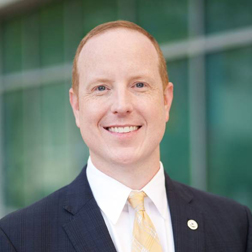GUEST COLUMN, Vance Ginn, Kansas Policy Institute
Jackson County residents voted overwhelmingly to recall County Executive Frank White Jr. in a historic election—the first successful recall in county history. The message was loud and clear: voters are tired of politicians wasting their money.
For months, Kansas City leaders have fought over who should pay for new stadiums for the Kansas City Royals and Kansas City Chiefs. Taxpayers were supposed to pick up the tab through higher taxes or state-backed financing schemes. That’s what triggered the backlash—and it’s exactly what’s wrong with economic development in both Kansas and Missouri. Frank White also had to deal with the years-long fallout of property tax spikes.
The government shouldn’t be in the stadium business.
Jackson County voters rejected a new sales-tax increase in the Spring of 2024 to fund the stadium projects. That vote should have ended the conversation, but politicians on both sides of the state line keep trying to bring the issue back. State of Missouri officials threw their proposal into the ring, hoping it would prompt Kansas City, MO, or Jackson County officials to do likewise. While Kansas lawmakers are eyeing STAR bonds to lure the Chiefs or Royals westward, they extended the deadline earlier this summer.
That idea has been tried before—and it fails almost every time. Kansas has already poured more than a billion dollars into STAR bond projects, yet the state’s own audits show that most have failed to meet revenue or job expectations. STAR bonds aren’t “self-financing.” They simply divert future tax revenue that would’ve gone to schools, roads, and public safety. It’s debt dressed up as development. When the government picks winners and losers, taxpayers always lose.
If lawmakers want proof that there’s a better way, they only need to look west—to Denver.
The Denver Broncos recently announced plans for a privately funded retractable-roof stadium and mixed-use district at the historic Burnham Yard, just south of downtown. The Walton-Penner ownership group—one of the wealthiest in professional sports—is financing the project with private investment, not taxpayer money. The new facility will include retail, entertainment, and community spaces designed to expand Denver’s economy through entrepreneurship and voluntary exchange, not government subsidies.
This isn’t theory. It’s happening. And it completely undercuts the argument that public financing is “necessary” to keep or upgrade sports teams. The Broncos ownership group has shown that private capital can fund world-class facilities, create jobs, and drive growth without forcing residents to pay higher taxes or sacrifice public services.
The Kansas City region could have followed the same path—but politicians, from both parties and both states, couldn’t resist meddling. Instead of trusting markets to work, they tried to use other people’s money to buy economic development. The results are familiar: angry voters, wasted resources, and little to show for it.
Proponents of stadium subsidies like to claim that these projects create jobs and boost tourism, but decades of research from the Brookings Institution, Cato Institute, and George Mason University’s Mercatus Center show the opposite. Stadiums don’t increase regional income or employment; they just shift spending from one area to another. A family that spends $200 at the ballpark isn’t spending that $200 at a local restaurant, theater, or store. The pie doesn’t get bigger—just rearranged.
If a stadium project truly makes financial sense, private investors will line up to fund it. If it doesn’t, politicians shouldn’t gamble taxpayer money trying to make it work. The best way to grow Kansas’s economy is to reduce spending, cut taxes, and remove regulations so entrepreneurs—not politicians—drive development. Every dollar that stays in private hands does more for growth than a government-backed bond ever will.
Frank White’s recall wasn’t just a local political shake-up. It’s a warning to every policymaker in Topeka and Jefferson City…and Overland Park and Kansas City: voters are done paying for stadiums that don’t pay off. Instead of fighting over who can offer the biggest subsidy, Kansas and Missouri should focus on what really works—responsible budgeting, lower taxes, and a stable business climate that rewards innovation and hard work.
Denver shows that when private enterprise takes the field, everyone wins. Kansas City shows what happens when the government calls the plays. The lesson is clear: it’s time to get the government out of the stadium business.












